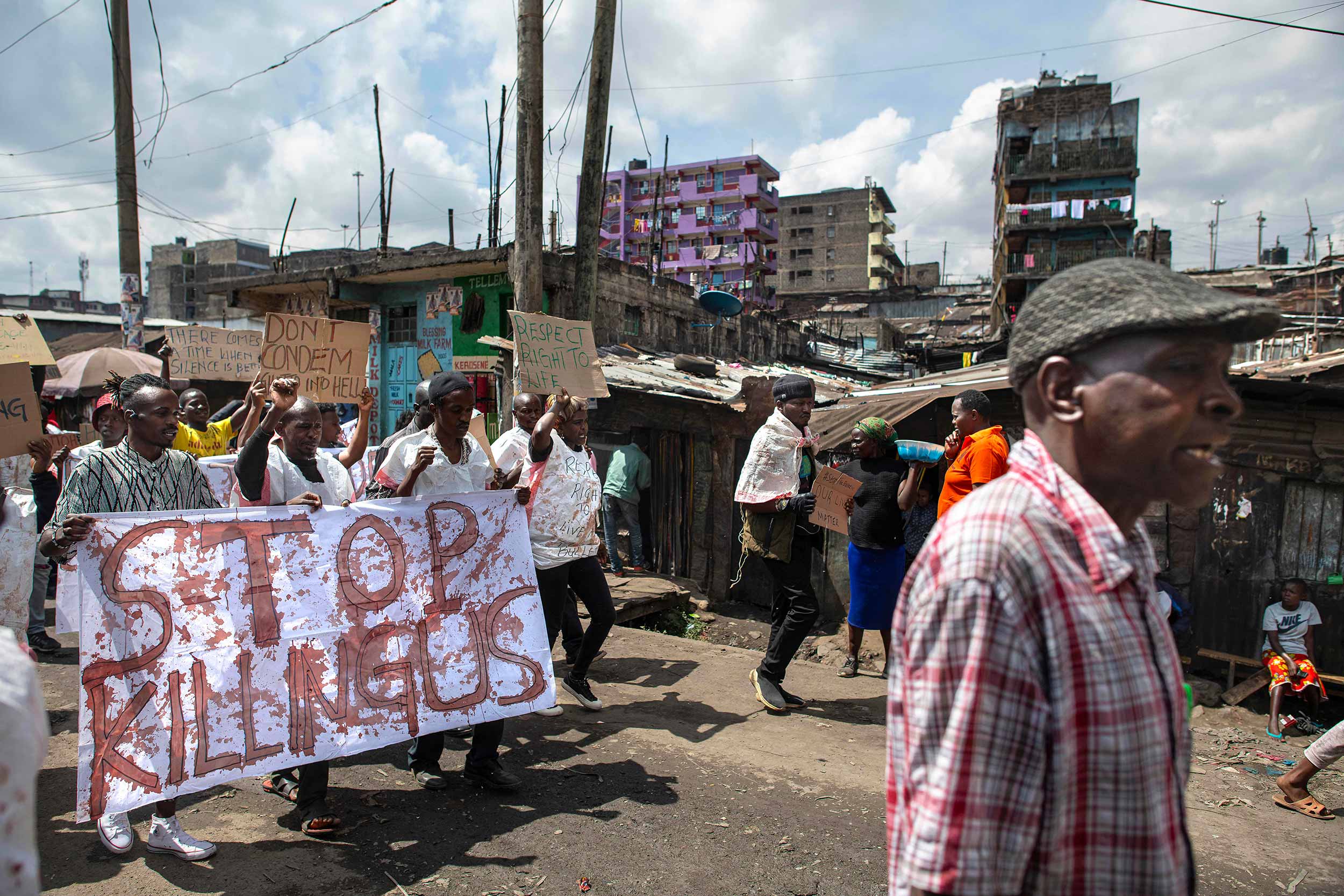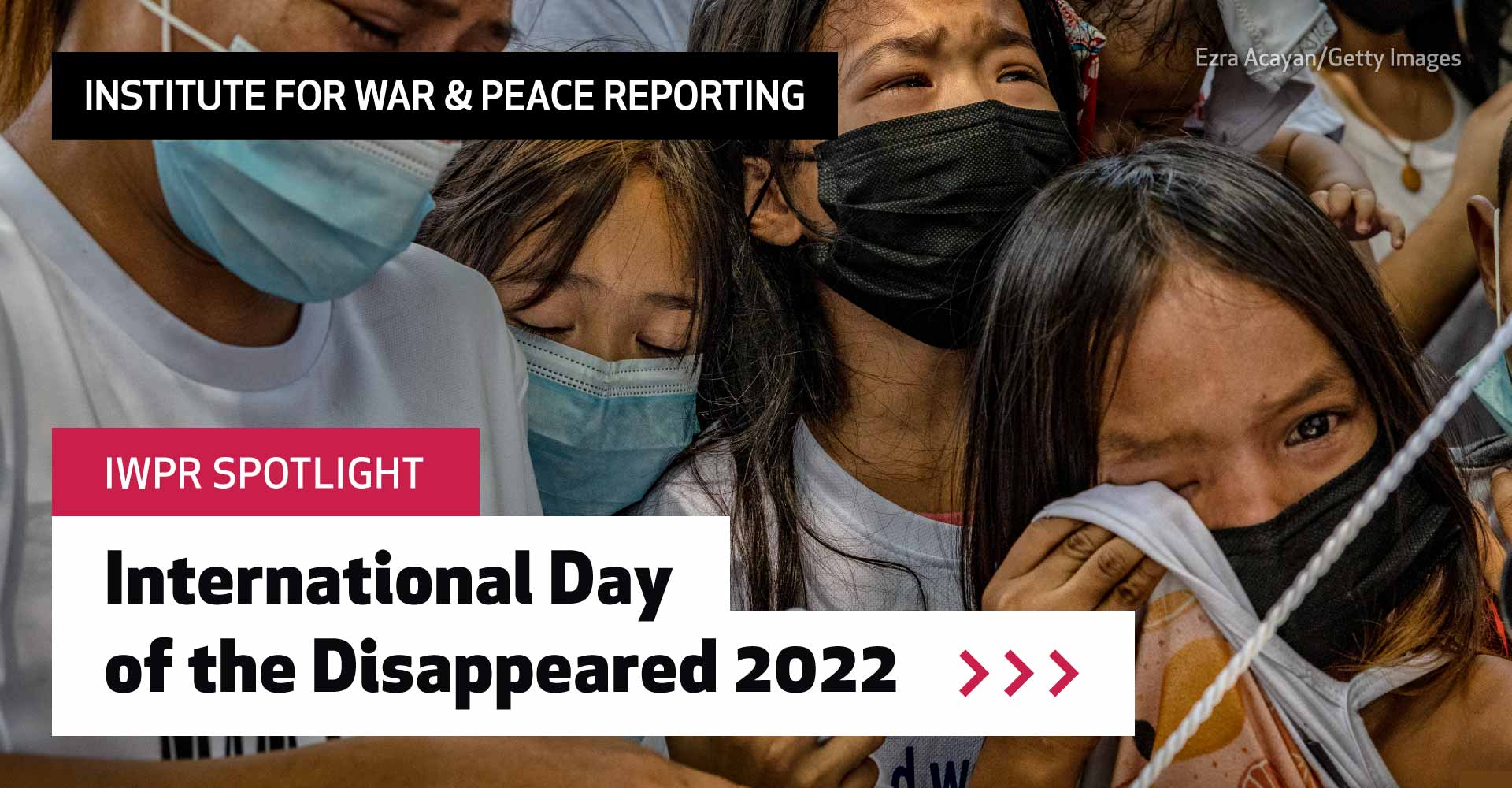Kenya: The Young Men Who Disappear
Many victims - usually people from the poorest slum areas - are never found. Campaigners say the police are often responsible.
I am Perpetua Kariuki, a human rights defender and co-founder of the Kayole community justice centre, which is based in Nairobi, Kenya. I document cases of police excess, habitual arrests and extra-judicial executions. We have a couple of justice centres in informal settlements and outside Nairobi. Around 17 organisations have come together to help document these cases, collecting data and help the victims’ families get justice.
I chose this path because I lost my elder brother in February 2016. My brother had an argument with his wife. He went out with friends, got drunk and went to spend a night at a friend's house, not knowing that police were searching for this friend. That man went out in the middle of the night and locked the door from the outside as my brother slept. When the police came in, they thought he was the wanted man. My brother surrendered, but the police shot him three times anyway.
It's common for young men to be killed by “killer cops,” as we call them. These policemen don't wear a uniform, use unmarked cars and collect the body very fast and look for cartridges. It is a big problem for evidence collection. Killer cops are well known in the community, but everybody is scared of them. People are not willing to testify in court. That's why most families don't easily get justice.
Killings happen mainly in informal settlements because people there live in poverty. People live on under a dollar a day. There's no water. We call it the criminalisation of poverty because most of these young men don't have jobs and they see their mothers struggling to feed them, to look after them. Most of them drop out of school because of these struggles and join gangs. I can't deny that some of them commit crimes like stealing a phone. But they don't deserve a bullet for that.

Police take pictures of young men and publish them on Facebook with a warning - you have to relocate or they will kill you. And after one or two days, the young man will be found killed. That is why now, when we see such posts, we contact other NGOs. They help to relocate this young man as fast as possible before he gets killed.
We have never gotten the answer to why police choose to kill instead of arresting the suspect and investigating the case. Maybe the government fears that if the poor are pushed to the wall, they will come together to get justice and a life of dignity. Food prices are so high that some families can't afford even two meals per day. It is how when you start stealing to survive. If these young men were employed or could receive a better education, I'm sure they would not commit crimes.
The most recent case happened just last week. Two men, a 20-year-old and a 19-year-old were on a motorbike when one of the killer cops told them to stop, but they were too frightened. Then this policeman shot one in the back. He was carrying a TV that he had bought - he had a receipt. One at the back died on the spot. The guy who was in front didn't die. The police came to arrest him. He asked the neighbours to help, saying he was not a thief. Police arrested him anyway. The family was looking for this boy in the hospital. Later a police car brought two bodies. He had a bullet in the neck and another bullet in his heart. These policemen were determined to kill this man. They were not planning to arrest him so that they could take him through the justice system.
I’m campaigning for the government to start using alternative ways of protecting property. They are killing young men saying that they are protecting us. But the government have not offered any opportunity for these young men.
It has been a battle between the government and us. They will never look at people from the informal settlement as equals. They only see us as second-class citizens.

